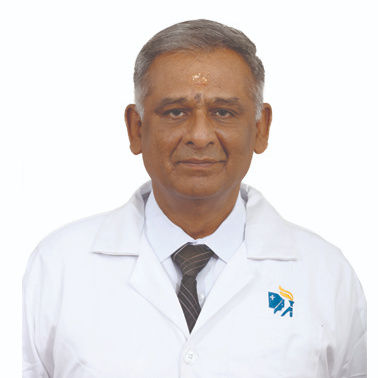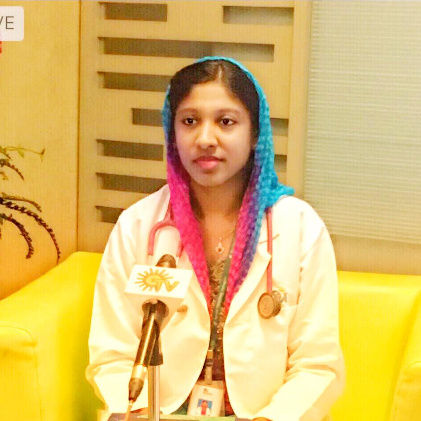Understanding Electrolyte Disorders and Their Management
Know what is electrolyte disorder is, its causes, symptoms and diagnosis for electrolyte levels and management and treatment for electrolyte disorders.

Written by Dr. J T Hema Pratima
Reviewed by Dr. Dhankecha Mayank Dineshbhai MBBS
Last updated on 13th Jan, 2026

Introduction
Electrolytes are essential minerals in your body that carry an electric charge and play a crucial role in maintaining various bodily functions. They help regulate nerve and muscle function, balance blood pressure, keep you hydrated, and support the repair of damaged tissues. However, when the levels of these electrolytes become too high or too low, it can lead to an electrolyte disorder, which can cause serious health problems if left untreated.
In this article, we’ll explore what electrolyte disorders are, their symptoms, causes, and how they can be managed effectively.
What Are Electrolyte Disorders?
Electrolyte disorders occur when there is an imbalance in the levels of key minerals in your body, such as:
Sodium (helps control fluid balance and nerve function)
Potassium (essential for muscle contractions and heart function)
Calcium (important for bone health and muscle function)
Magnesium (supports nerve and muscle function, as well as energy production)
Chloride (helps maintain fluid balance and digestion)
Phosphate (works with calcium to strengthen bones and teeth)
These imbalances can happen due to dehydration, kidney disease, hormonal imbalances, or certain medications.
Consult a General Physician for Personalised Advice
Common Symptoms of Electrolyte Disorders
The symptoms of an electrolyte imbalance depend on which mineral is affected and whether its levels are too high or too low. Some common signs include:
Muscle cramps, spasms, or weakness
Fatigue or lethargy
Irregular heartbeat (palpitations)
Nausea or vomiting
Confusion or difficulty concentrating
Headaches
Numbness or tingling in limbs
Seizures (in severe cases)
If you experience any of these symptoms persistently, it’s important to consult a doctor for proper diagnosis and treatment.
Causes of Electrolyte Imbalances
Several factors can disrupt your body’s electrolyte balance, including:
1. Dehydration or Overhydration
Not drinking enough water can lead to high electrolyte levels.
Drinking too much water too quickly can dilute electrolytes, causing low levels.
2. Kidney Problems
The kidneys regulate electrolyte levels, so diseases like chronic kidney disease (CKD) can cause imbalances.
3. Medications
Diuretics (water pills), chemotherapy drugs, and laxatives can affect electrolyte levels.
4. Poor Diet or Malnutrition
Not consuming enough nutrient-rich foods can lead to deficiencies.
5. Excessive Sweating or Diarrhoea
Losing fluids rapidly through sweating (during intense exercise) or diarrhoea can deplete electrolytes.
6. Hormonal Imbalances
Conditions like diabetes or thyroid disorders can impact electrolyte regulation.
How Are Electrolyte Disorders Diagnosed?
If your doctor suspects an electrolyte imbalance, they may recommend:
Blood tests – To measure levels of sodium, potassium, calcium, and other minerals.
Urine tests – To check kidney function and electrolyte excretion.
ECG (Electrocardiogram) – If heart rhythm abnormalities are present.
Get Your Health Assessed
Based on the results, your doctor will determine the best treatment approach.
Managing and Preventing Electrolyte Disorders
1. Stay Hydrated (But Not Overhydrated)
Drink enough water daily (about 8-10 glasses), especially in hot weather or after exercise.
If you sweat a lot, consider drinks with electrolytes (like oral rehydration solutions or coconut water).
2. Eat a Balanced Diet
Include foods rich in essential electrolytes:
Sodium: Table salt (in moderation), pickles, olives.
Potassium: Bananas, sweet potatoes, spinach, avocados.
Calcium: Dairy products, leafy greens, almonds.
Magnesium: Nuts, seeds, whole grains, dark chocolate.
3. Monitor Medications
If you take diuretics or other medications that affect electrolytes, regular blood tests may be needed.
4. Treat Underlying Conditions
Managing diabetes, kidney disease, or hormonal disorders can help maintain electrolyte balance.
5. Avoid Excessive Alcohol and Caffeine
These can contribute to dehydration and electrolyte loss.
When to Seek Medical Help
Seek immediate medical attention if you experience:
Severe muscle weakness or paralysis
Irregular heartbeat
Seizures
Extreme confusion
Final Thoughts
Electrolyte disorders can affect anyone, but with proper awareness, hydration, and diet, they can be managed effectively. If you experience persistent symptoms, don’t ignore them. Detection and treatment are key to staying healthy.
Consult a General Physician for Personalised Advice
Consult a General Physician for Personalised Advice
Dr Rakesh Ram
General Physician/ Internal Medicine Specialist
4 Years • MBBS, MD (INTRNAL MEDICINE)
Secunderabad
Apollo Hospitals Secunderabad, Secunderabad

Dr. B Sivananda Reddy
General Physician
12 Years • D M ( OSMANIA MEDICAL COLLEGE, KNRUHS ) MD ( KASTURBA MEDICAL COLLEGE , MAHE) MBBS ( PESIMS&R, NTRUHS).
Secunderabad
Apollo Hospitals Secunderabad, Secunderabad

Dr. Ramya Hari
General Practitioner
18 Years • Medical Head & Family Physician, DG Shipping Approved Doctor, Panel Physician - UK Visa Medicals
Chennai
Apollo Medical Centre Kotturpuram, Chennai

Dr. Subramony H
General Physician/ Internal Medicine Specialist
25 Years • MBBS, MD
Chennai
Apollo Hospitals Greams Road, Chennai
(50+ Patients)

Dr. Afreen Banu Khan
General Physician/ Internal Medicine Specialist
12 Years • MBBS, DDM (Diab). FCC (Cardio)
Chennai
Apollo Speciality Hospitals OMR, Chennai


